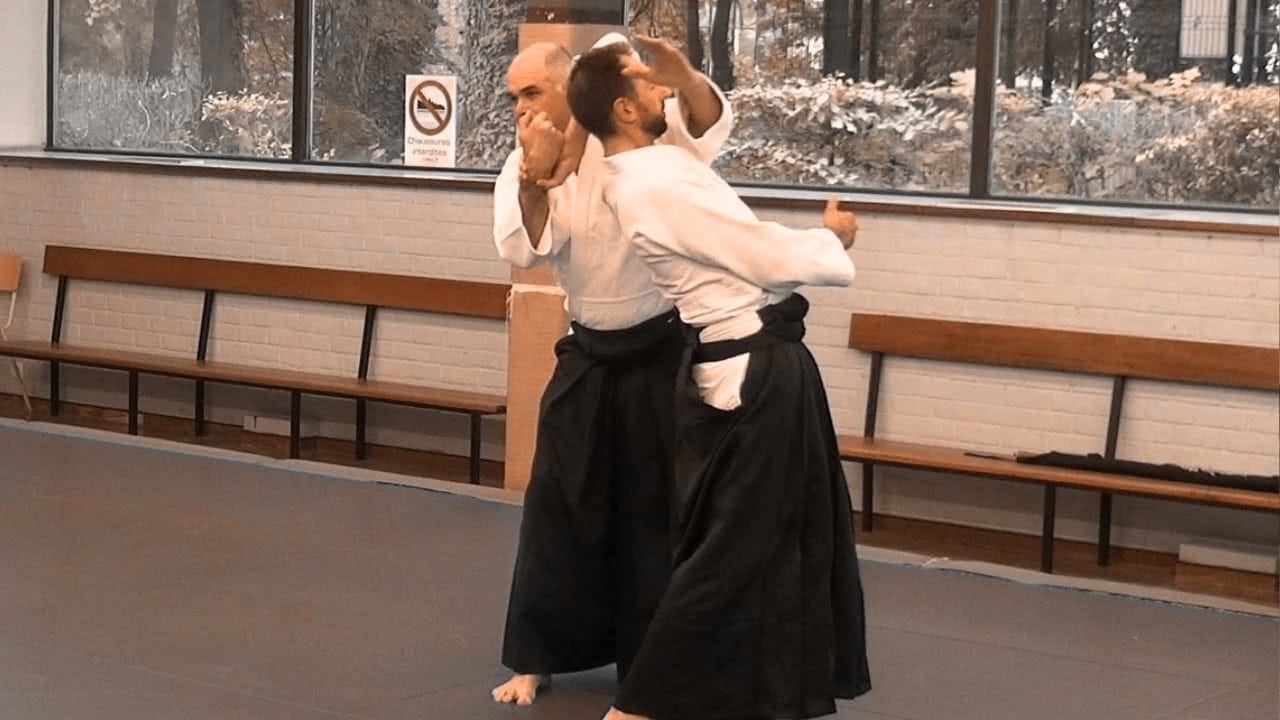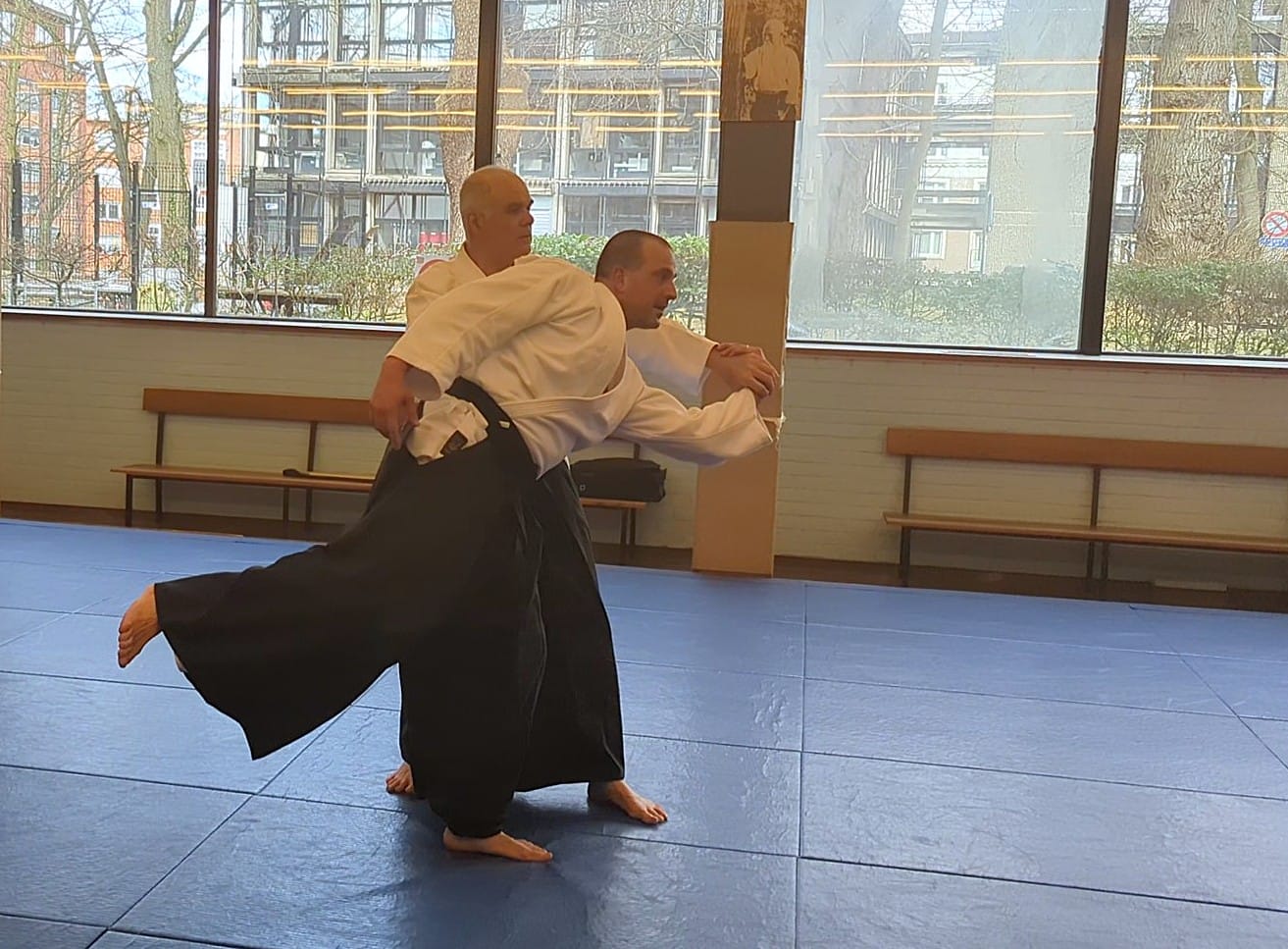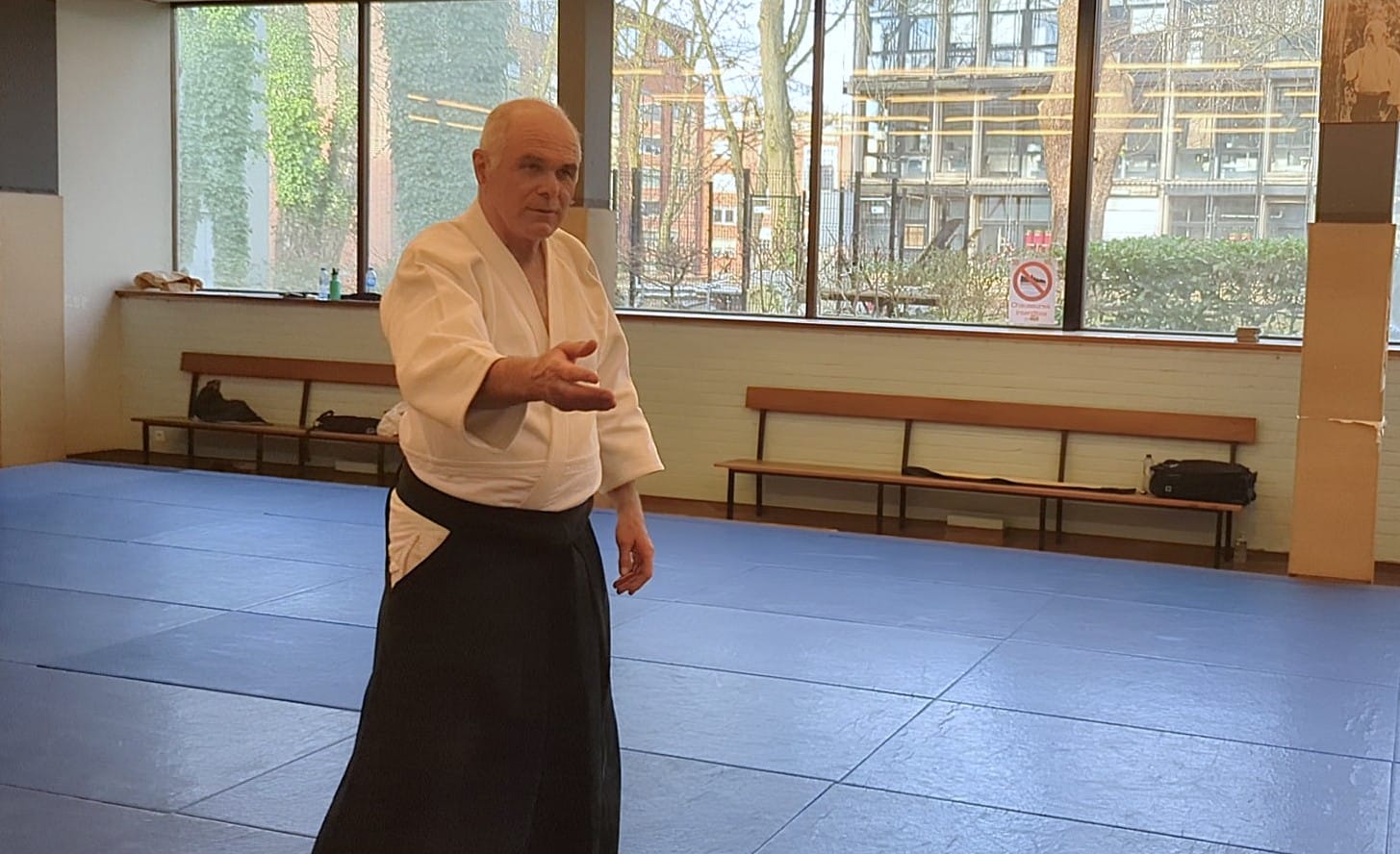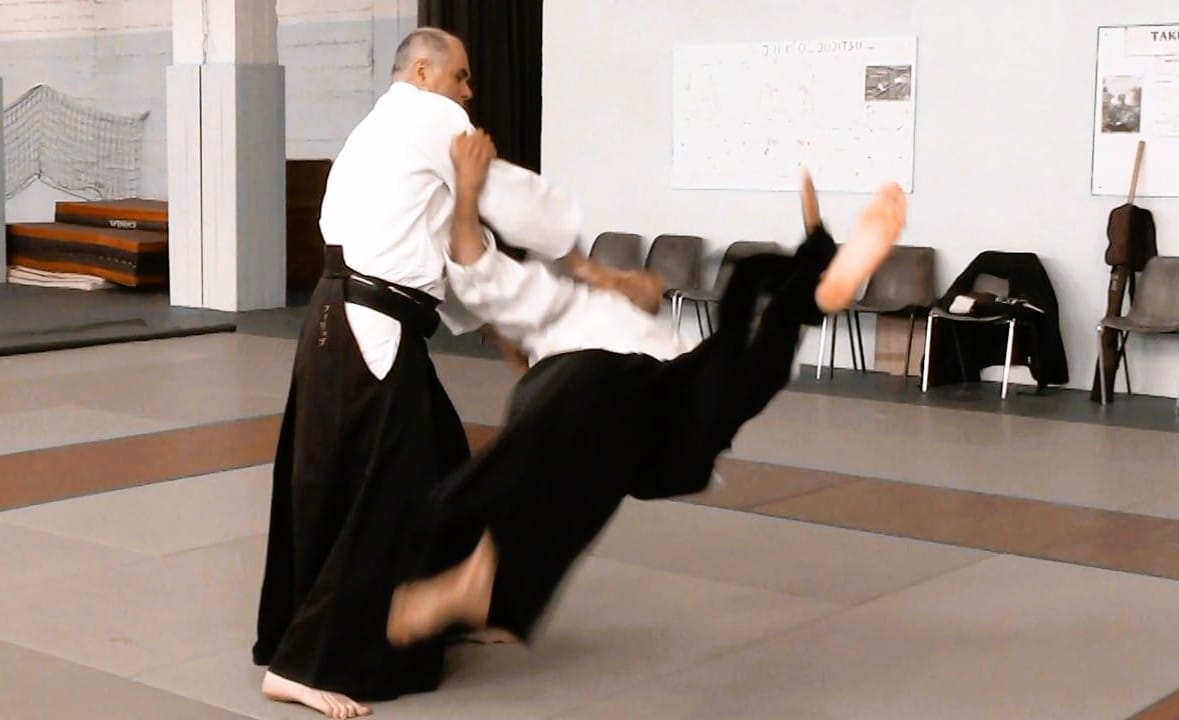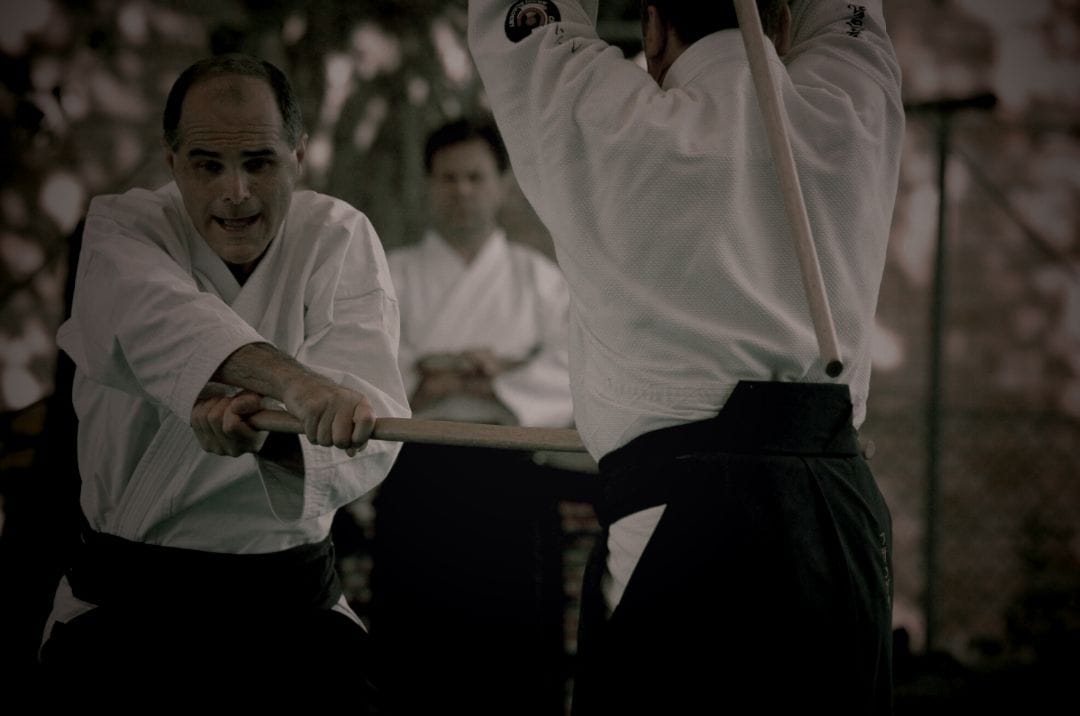Who does the Aikido movement? I don't.
I don't know who does it, but I know it's not me.
I don't say : "I'm going to do this technique, or I'm going to do that technique, and to do that technique I'm going to position myself in such and such a way". As long as we reason in this way, Aikido becomes a mere show. It's beautiful, but it's a false beauty.
Aikido may be spectacular, but it is not theatrical in the sense that it is not the result of one man's deliberate arrangement. In a theater, there's a stage manager, who organizes the smooth running of the staging. This is not the case in the art of Takemusu : the Aikidoka is not a stage manager, and the staging does not depend on him.
Time and space decide what is to happen. The relationship between the parameters of time and space produces the only technique that was relevant at that precise moment in the course of the universe. The video attempts to illustrate this with an example :
Man is a place of passage, a vehicle, a means perhaps. Through him, a force is expressed that does not belong to him, that he does not control, and that transcends him. There is a condition to this, which is within his reach, and his virtue consists in fulfilling it : not hindering by personal initiative, by sui generis action, the force that wishes to express itself through him.
The value of human action emerges from a disposition of mind such that the personality steps aside, or at least takes a back seat, so that the energy (ki) of the universe can manifest itself. This is what we call non-doing in the West, or wu wei in the East, it's the opposite of inaction, it's total action. Energy and man (himself energy) become one, energy is unified (aiki) in an ephemeral form. Whatever technique is born of this balance is right because it is aiki, and because it is aiki it brings harmony and peace as well as martial efficiency.
But this total action does not come spontaneously to man, it is in conflict with his ego, which wants to do something at all costs, no matter how opposed it may be to the order of the world. So he must learn how not to impede the flow of energy by an initiative born of individual, subjective choice, and understand how he can act without acting. Aikido is one way of learning, among others, how to relate objectively to the world, or how to be-in-the-world so as not to oppose the world.
I don't know if Heidegger had anything other than a theoretical approach to man's relationship to Dasein, to being-in-the-world, but I do know that in Aikido, this relationship involves working on the body, through rigorous education in gestures that conform to the harmony that stems from universal laws. And that the concept of harmony can only be achieved when the mind develops as an extension of the body, in line with the body's capacity to understand. It is a teaching of Aikido that the mind, however willing, is not capable of accessing Dasein on its own. The mind alone enters into a conflictual relationship with the world through the imbalance induced by such a monopoly. This conflictual relationship gives rise to great suffering, both individual and collective.

